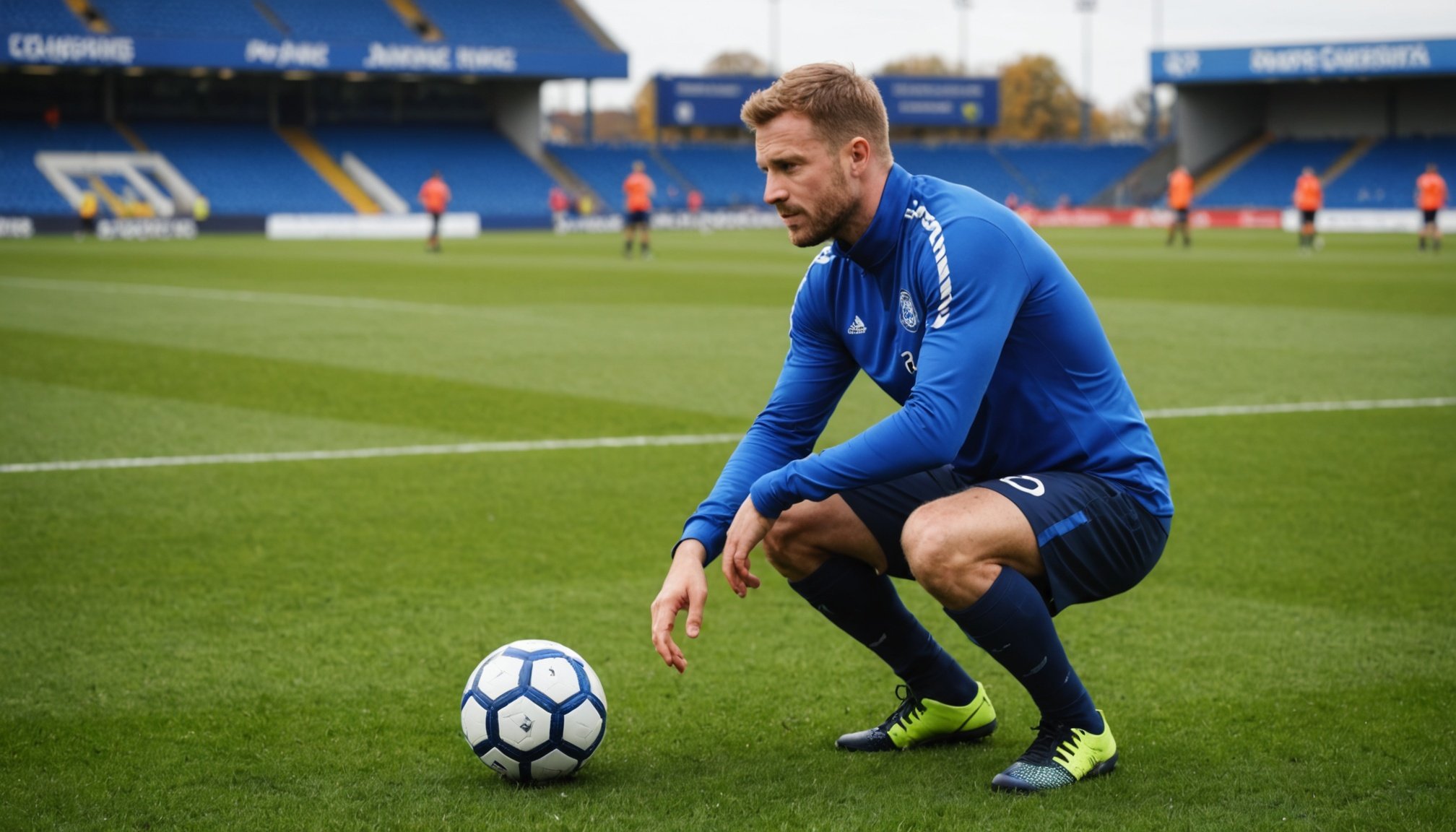Overview of Player Wellbeing in Football Clubs
Ensuring player wellbeing is vital for success on and off the field. Player wellbeing refers to the holistic health of an athlete, encompassing both mental health in sports and physical health in football. It’s increasingly recognized that maintaining balanced wellbeing is crucial for peak performance.
The mental health in sports component involves managing stress, pressure, and emotional stability. Football clubs now acknowledge the importance of psychological resilience, offering resources like therapy and mental coaching. The aim is to foster an environment where players feel mentally supported, enabling them to perform consistently.
On the other hand, the physical health in football is about sustaining players’ bodies through training regimens, proper nutrition, and recovery strategies. Clubs prioritize preventing injuries and ensuring long-term fitness, essential for an athlete’s career longevity.
Currently, many clubs face challenges in seamlessly integrating mental and physical health initiatives. There is a growing trend towards creating comprehensive support structures that address both components simultaneously. However, balancing these aspects requires ongoing effort and adaptation.
Also read : Ultimate one-on-one isolation defense drills: elevate your defensive skills to new heights
Emphasizing player wellbeing not only enhances individual performance but also strengthens team dynamics, making it a cornerstone of modern football clubs’ approach. By understanding and investing in both mental health in sports and physical health in football, clubs aim to achieve holistic success.
Essential Strategies for Promoting Player Wellbeing
Developing comprehensive wellbeing policies is central to boosting player health. Football clubs need to craft policies that seamlessly integrate mental and physical health resources. By embedding these elements into the core of their operations, clubs ensure that player wellbeing is prioritized.
Integration of mental health resources within club frameworks is crucial. Establishing accessible channels for players to seek mental health support, such as therapy and mental coaching, creates a supportive environment. Clubs must actively promote these resources to reduce stigma and encourage their use.
Creating a supportive and inclusive club environment fosters a sense of belonging among players, nurturing both their personal and professional growth. This inclusion can be achieved by celebrating diversity, addressing grievances effectively, and ensuring equal opportunities for all players. Emphasizing holistic welfare allows clubs to support all aspects of player wellbeing.
Adopting a holistic approach helps football clubs address the intricate balance between mental and physical health. A strategic emphasis on nutrition, recovery, and mental coaching ensures players’ comprehensive health needs are met. These strategies contribute to sustaining players’ careers and optimizing their performance. Hence, promoting player wellbeing through structured policies and inclusive practices is imperative for engaging transformative benefits in modern football.
Metrics for Measuring Success in Player Wellbeing
Effectively measuring success metrics in player wellbeing is critical for football clubs aiming to enhance performance and health. Identifying key performance indicators (KPIs) allows clubs to evaluate the impact of wellbeing initiatives. Common KPIs include tracking injury rates, player mental health improvements, and overall satisfaction levels.
Tools for evaluation and collecting player feedback are crucial in this process. Surveys, regular check-ins, and specialised software can gather insights on player perceptions and experiences. These tools help in understanding the real-time effectiveness of wellbeing programs.
Regular analysis and reporting on these metrics provide clubs with a foundation to make informed adjustments. Establishing a continuous feedback loop ensures that wellbeing strategies remain effective and address emerging challenges. This dynamic process fosters a responsive environment where wellbeing policies evolve alongside player needs.
Incorporating player feedback not only improves wellbeing strategies but also boosts player trust and engagement. When athletes see their feedback resulting in tangible changes, it encourages more open communication, leading to further enhancements in club policies.
By focusing on measurable outcomes and adapting strategies based on evaluation outcomes, clubs can ensure their wellbeing efforts are not just supportive but also sustainably effective. Such success metrics are indispensable for long-term improvement and player satisfaction.
Case Studies: Successful Implementation of Wellbeing Strategies
Exploring case studies of football clubs that have successfully implemented wellbeing strategies can provide actionable insights and inspiration for others looking to enhance their player wellbeing efforts.
Club A: Innovative Mental Health Programs
Club A has been at the forefront of mental health in sports, pioneering programs that set an example in the industry. They introduced regular workshops with mental health professionals, which have made significant strides in reducing anxiety and performance pressure among players. By fostering open dialogue and trust, they not only enhance mental health but also strengthen team cohesion and overall morale.
Club B: Fitness and Nutrition Initiatives
Club B’s comprehensive physical health in football strategy focuses on individualized fitness regimes and tailored nutrition plans. Their success lies in collaborating with nutritionists and physiologists to create sustainable and effective training programs. Player injuries have decreased markedly, showcasing the effectiveness of personalized health strategies and leading to improved game performance.
Club C: Community and Social Support
Club C emphasizes a community-driven approach, integrating social support systems within their fabric. By establishing networks that include family involvement and peer support, they nurture a holistic environment conducive to personal growth and career longevity. This approach has not only improved player satisfaction but also cultivated a resilient, tightly-knit team.
Guidelines for Training and Support for Coaches and Staff
In the pursuit of enhancing player wellbeing, equipping coaches and staff with the necessary skills is paramount. Training programs focusing on mental health awareness aid coaches in identifying stressors impacting players’ performances, ensuring they are equipped to offer meaningful support. By integrating mental health education into their routine, coaches can better understand and address the evolving challenges in mental health in sports.
Continuous education for support staff is equally critical. Programs should include workshops on physical health in football and modern recovery techniques, enabling staff to provide comprehensive care. This training ensures that all club personnel are aligned with the latest practices to support the holistic health of players.
An effective strategy is to establish mentorship systems within clubs. By pairing experienced staff members with newcomers, knowledge transfer is seamless, fostering a culture where player wellbeing is prioritized. This mentorship not only enhances staff capabilities but also strengthens team unity, instilling a shared commitment to player care systems.
Implementing these strategies contributes to creating a supportive environment where both players and staff excel. Clubs investing in their personnel’s development ultimately promote a culture centered around holistic player wellness and sustainable sports success.











